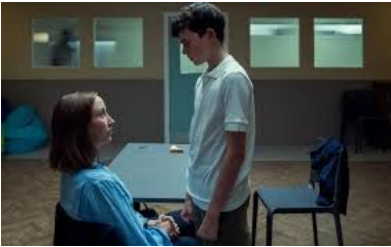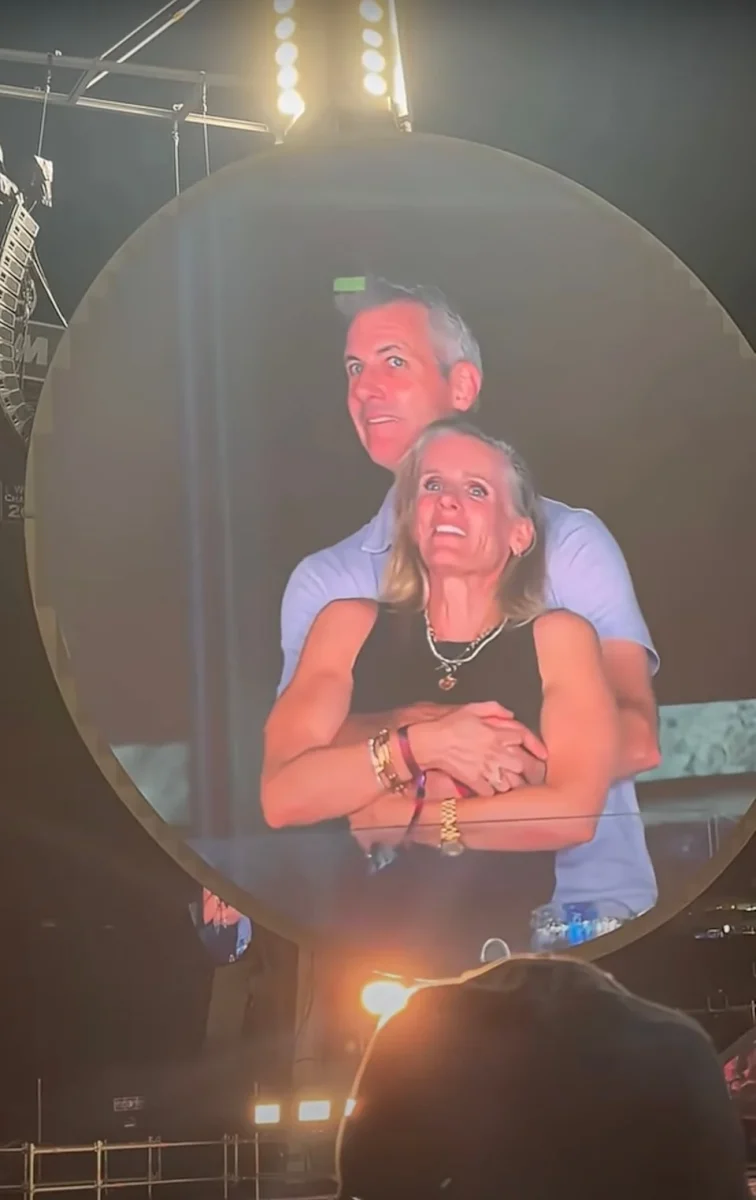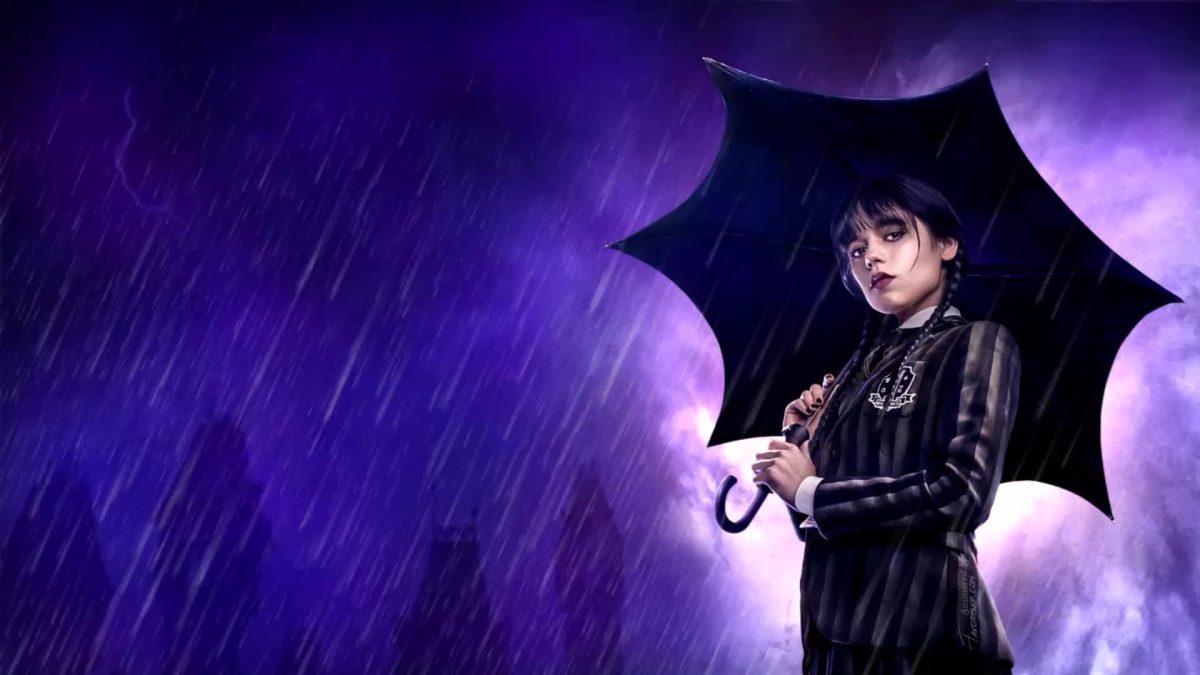
On March 13, Netflix released the drama series “Adolescence”, which has since amassed over 66 million views, setting the record for the most viewed limited series on the platform. The show has received overwhelming support from fans and critics alike, having secured the number one spot on Netflix’s top ten list since its release and earning a 99% score on Rotten Tomatoes.
The show is about a young boy named Jamie Miller (played by first-time actor Owen Cooper) who is accused and arrested for the murder of one of his classmates, Katie Leonard (Emilia Holliday), and the subsequent fallout of the event.
The series consists of only four episodes, each about an hour long and each shot in one continuous take. This stylistic choice is not only a technical wonder, but it also immerses the audience into the show, making it feel as though the viewers are in the moment along with the characters.
The first episode focuses on the arrest of Jamie. The second episode follows the police as they take their investigation to Jamie’s school to try to learn more about both him and Katie. In the third episode, we see Jamie as he is interviewed by a psychiatrist who is putting together a pre-trial report on his mental state. The final episode focuses on the aftermath, almost a year later, as his family tries to celebrate his father’s (played by the series co-creator Stephen Graham) 50th birthday.
The series sets itself apart from other crime dramas as it isn’t the traditional “whodunit”. The question of Jamie’s innocence, or lack thereof, is not up for debate. It is revealed early in the first episode that he is guilty through CCTV footage of him committing the crime, despite his constant pleas otherwise. The show’s main focus is the social and environmental factors that led Jamie to commit the crime.
It is revealed throughout the show that Jamie was consuming media online surrounding the manosphere, which is an online community that promotes misogyny, toxic masculinity, and incel (involuntarily celibate) culture. A major figurehead in the manosphere is Andrew Tate, who is popular for spreading hateful and harmful rhetoric about women and feminism. It is implied that Jamie had been radicalized by this sort of content, which heavily impacted his view of girls and gender roles.
Episode three, the highest rated episode out of the three, gives us the best insight into Jamie’s mind and character. During his conversation with a psychiatrist, Briony Ariston (played by Erin Doherty) we watch as Jamie switches from easy-going and charismatic, to angry and violent, to mean and manipulative. We learn about his feelings towards women, who he often shows an obvious lack of respect towards.
Millbrook junior Jordan Jeffreys details a scene that stood out to her from episode three between Jamie and the psychiatrist: “When he gets upset, he expresses anger that transcends his age and that is motivated by a lack of respect for women… He laughs at the fact that she finds him scary, which highlights his lack of understanding that he is accused of murder and that his ideologies towards women make his actions towards them unpredictable, which is most evident in his killing.”
In this episode, it is revealed that Katie had topless photos of her sent around the school. Many of the boys, including Jamie, had made fun of her because of this. Jamie figured that it would be a good time to ask her out. In his mind, asking her out after she experienced something so humiliating is doing her a kindness, since no one else would even bother to look at her that way. However, instead of agreeing to go out with him like Jamie expected, Katie responds with, “I’m not that desperate.” This response angered Jamie so much that he stabbed Katie to death in a parking lot.
The way Jamie talks about Katie and what he did to her shows just how little he thinks of women. How below him he feels they are. He never acknowledges that what he did was wrong because he truly doesn’t believe it was. His exposure to the manosphere had turned Jamie into an angry and violent boy, hidden beneath the veneer of a regular teen.
“Adolescence” isn’t based on one true story. It is inspired by a growing epidemic of incidents where young boys are violent towards young girls. In an interview with Rolling Stone, Graham said, “Because we have a real crisis going on with young men today, and we’ve got to start talking about it right now. It affects all of us.” More and more teen boys are being exposed to and radicalized by manosphere content, creating an entire generation of violent young men who harbor immense hatred towards women. This show is a commentary on that, a warning of sorts.
However, the show recognizes that social media and this online radicalization aren’t the only factors that can lead to the creation of these violent boys. Community and family also play a major role. In the second episode, we see Jamie’s school, and we can see how chaotic it is. There are too many students and not enough teachers. We see teachers struggle to keep them under control, and some don’t even try. We learn how the way Jamie’s dad showed his anger shaped the way Jamie shows his.
In a Rolling Stone interview, the show’s other co-creator, Jack Thorne said, “They say it takes a village to [raise] a child. It takes a village to destroy a child.” The goal of the show was to inform people of the importance of being involved in the raising of children. To catch the signs of negative or harmful behavior, and take action to eliminate it before it is too late.








Anéssa Myers • Apr 7, 2025 at 10:50 am
oh u ate